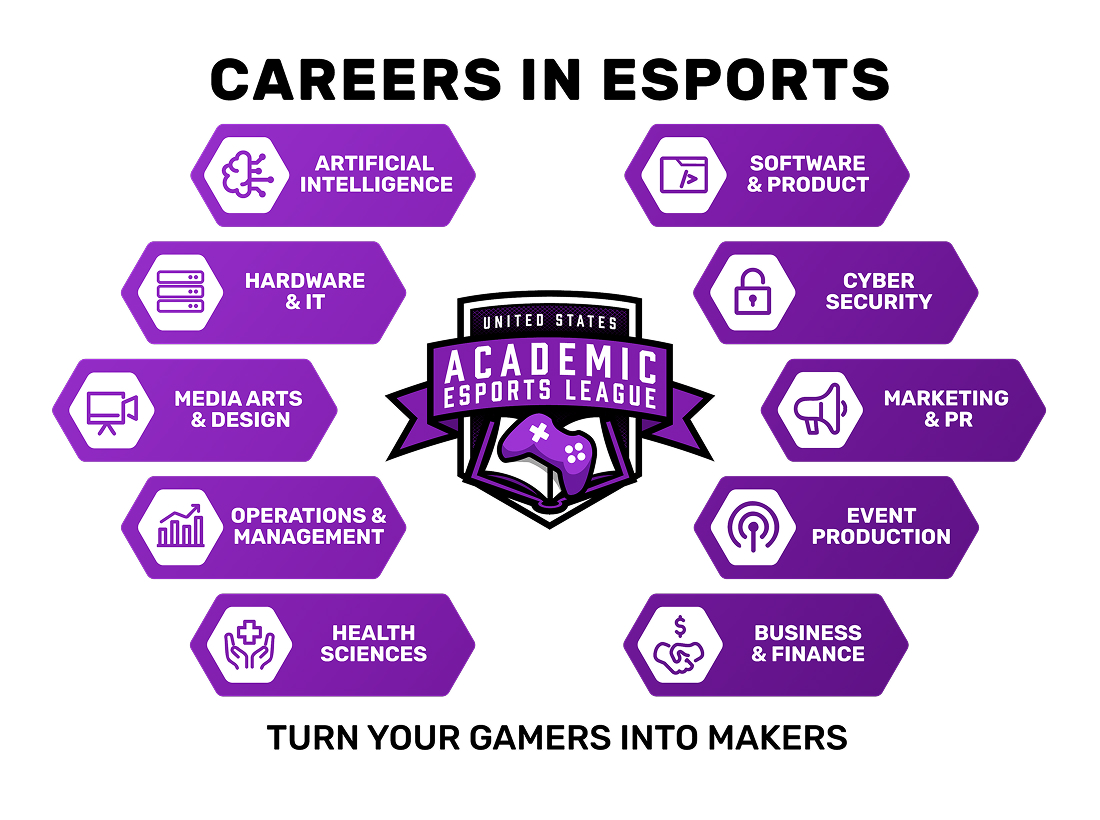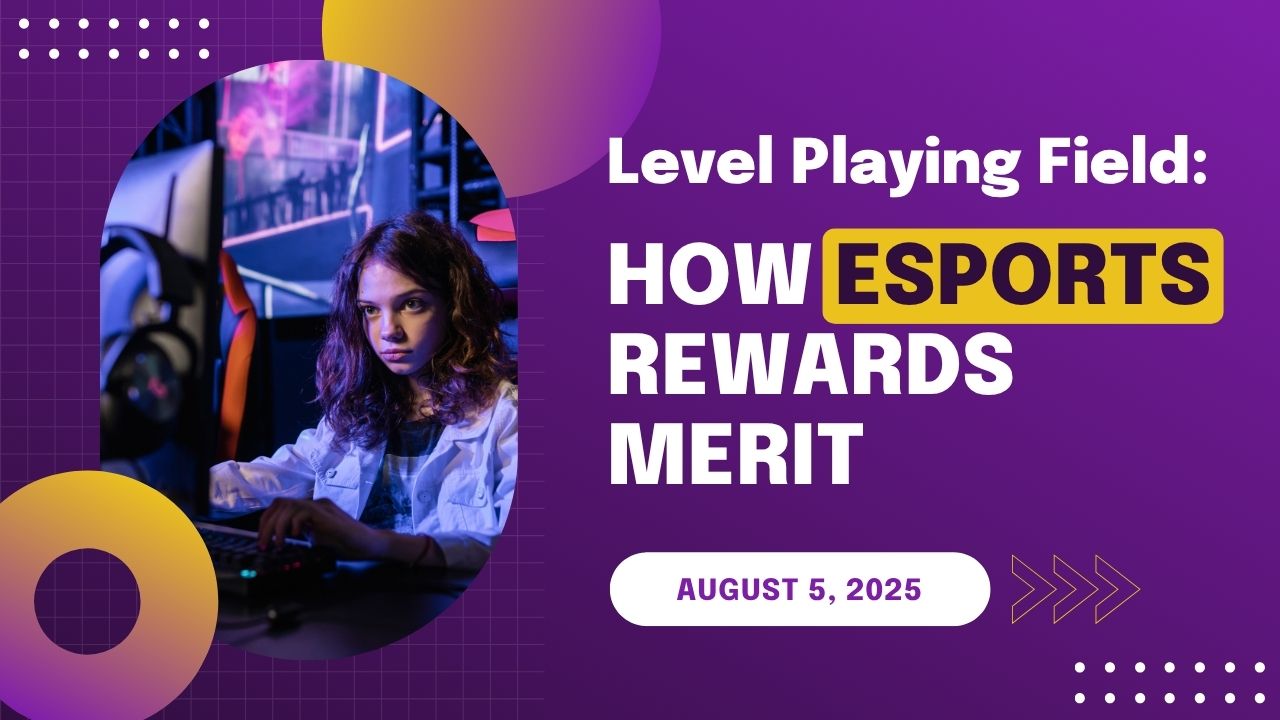I remember the day I met Shaquille O’Neal. It was the day my dreams officially died.
Not because of Shaq. He was great. Funny. Generous. A super nice guy. But when I shook his hand I realized that there was no chance I’d ever play in the NBA. Like NONE! He was a mountain. Immovable and towering. With forearms bigger than my torso and shoulders so hulking… aw, you get the point. Shaq was 7’1”, 350 lbs and in pretty great shape. On more than one occasion he slam dunked a basketball so hard he shattered the backboard. At 5’8” and 145 lbs, I’ve never touched an NBA rim without a step ladder.
Nope, there would be no NBA contracts for me.

Esports, however, doesn’t care about physical size. Nor does it care about race, gender, cultural background, or income level.
What matters is skill. In the world of gaming, those with the best strategies, reflexes, and communication win. Seven-footers have zero advantage.
Welcome to Meritocracy!
A Merit-Based System in Action
One of the most exciting developments in modern education is the rise of K12 esports as a pathway to opportunity. Unlike traditional sports or elite extracurriculars that often reward factors outside of one’s control, esports is rooted in merit. Players from every walk of life can rise to the top, not based on who they know, but what they can do.
This is especially meaningful in elementary esports, middle school esports, and high school esports programs where students may be encountering success for the very first time. In a K12 esports league, the scoreboard doesn’t care about your background—just your performance.
It’s a true meritocracy. In this digital arena, your gaming ability, teamwork, and dedication speak louder than your zip code.
Esports in Schools: Access Over Advantage
The expansion of esports in schools has opened doors for thousands of students who otherwise might not participate in extracurricular activities. Thanks to free-to-play games and accessible platforms, participation doesn’t require elite gear or expensive travel. A modest console or PC, a decent internet connection, and a supportive school environment are often all it takes to get started.

Compare this to traditional sports—where the cost of cleats, coaching, camps, and travel teams can easily price out under-resourced families. In contrast, esports allows kids from all socioeconomic backgrounds to game and learn on much more equal footing.
The US esports scene is growing rapidly because of this accessibility—and schools are taking notice.
Skill Is the Great Equalizer
In online competitive play, your gamertag becomes your identity. Biases and stereotypes that exist in the physical world are muted when you're playing from behind a screen. You’re judged by your decision-making, your reaction speed, your strategic thinking—not by your skin color, body type, or income bracket.
High school esports programs across the country are already producing top-tier talent from places most traditional scouts never looked. From rural towns to urban centers, students are climbing leaderboards and earning scholarships based purely on skill.
This digital meritocracy proves that any student, anywhere, can rise—if they’re willing to practice, learn, and compete.
From Gamers to Workforce-Ready Graduates
Esports isn’t just about playing games—it’s a bridge to the future. Increasingly, schools are adopting esports curriculum that connects gaming to real-world careers in technology, design, AI, and communication.

By incorporating esports into Career and Technical Education (CTE) pathways, educators are turning student passion into workforce-ready skill development. Esports programs teach critical 21st-century competencies:
- Teamwork and collaboration
- Strategic thinking and problem-solving
- Digital literacy and media production
- Design thinking
- Leadership and communication
- And more
Whether students dream of becoming pro players, streamers, shoutcasters, or coders, K12 esports can be a launchpad.
Diverse Careers in the Esports Ecosystem
The global esports industry isn’t just booming—it’s bursting with job opportunities. And many of these roles are accessible to students who build a portfolio of skills through school-based programs:
- Content creators and influencers
- Graphic designers and artists
- Event organizers and tournament managers
- Software developers and game designers
- Social media and community managers
- Cybersecurity specialists
These aren’t pipe dreams. Students who start young in middle school esports and continue through high school esports often graduate with real-world experience—editing videos, moderating online communities, managing events, or coding in Python.
This is what CTE workforce ready programming should look like: empowering students to turn play into purpose.
A New Kind of Classroom Confidence
What’s also striking is how esports in schools transforms student engagement. For many kids—especially those who feel left out of traditional school culture—joining an esports team is the first time they feel seen, valued, and celebrated.
Esports clubs become spaces where students with ADHD, autism, or social anxiety thrive. Where girls who love Minecraft but don’t care for volleyball shine. Where multilingual students become captains, and quiet kids become leaders.
This kind of inclusive empowerment is hard to measure on a test—but it changes lives.
Ultimately, The Merit is the Message
Back to Shaq.
If basketball was about reflexes, not rebounds…
If height didn’t matter but strategy did…
If you could climb the NBA ladder from your bedroom with nothing but dedication and a controller…
Maybe, just maybe, I’d have stood a chance.
But I’m not bitter. I’m inspired. Because now I get to see students who were once invisible in school find purpose, connection, and success through K12 esports. And that’s the kind of dream that deserves a spotlight.
Esports rewards merit. It opens doors. It builds careers.
It’s time to make sure every student has the chance to walk through.





